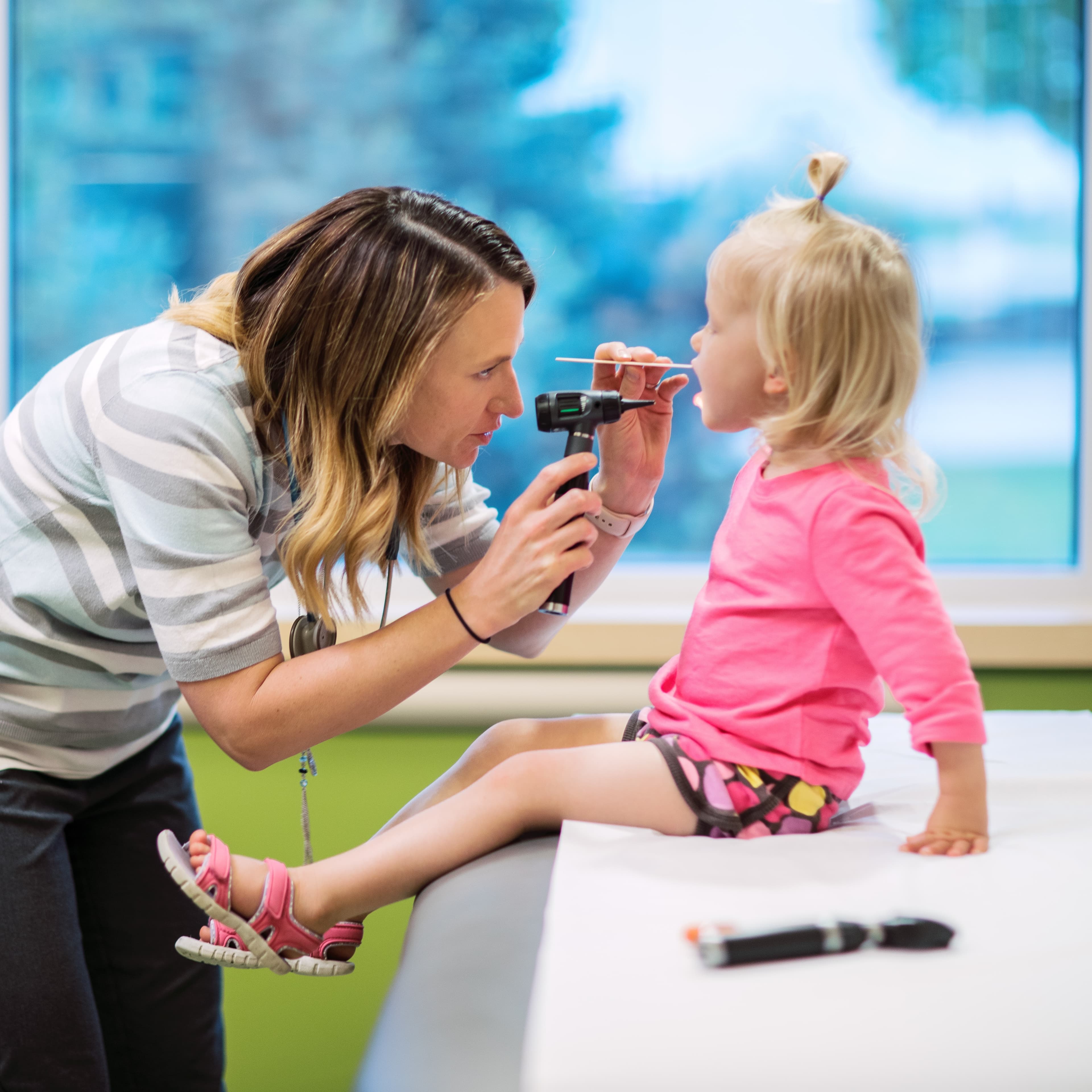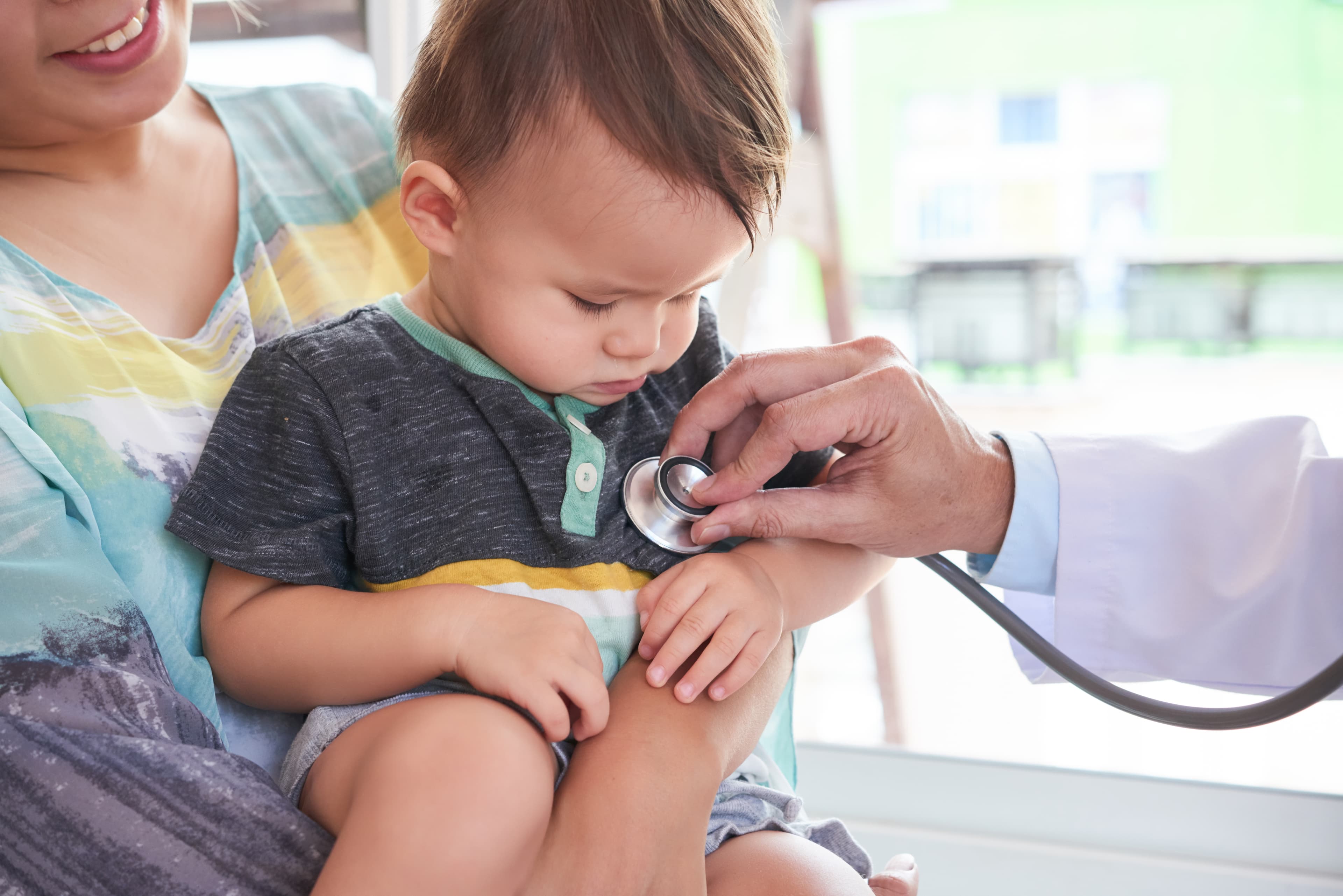What Parents Need to Know About Measles
Learn how measles spreads, what signs to look for and ways to protect your children against the recent measles outbreak.
May 2, 2025
Since the beginning of 2025, there have been almost 1,000 reported cases of measles in the United States, according to the Centers for Disease Control and Prevention (CDC). Measles is a very contagious virus and more cases are being reported every week. With the current measles outbreak, how concerned should you be?
Get the facts about measles and measles prevention so you can keep your family safe.
How Measles Spreads
Measles is transmitted through the air, making it very easy to spread.
As Tina Scott-Mordhorst, MD, a pediatrician with Children's Physicians - Plattsmouth, explains, “When someone with measles coughs or sneezes, they release droplets of the virus. These drops become airborne and can linger in the air or on surfaces for up to two hours after the infected person has left the area.”
This means shared spaces — such as schools, homes, grocery stores and airplanes — can pose a risk for exposure, especially for people who aren’t protected.
Measles Symptoms to Watch For
Measles can be tricky to diagnose because symptoms often present like a common cold. Early measles symptoms include:
Runny nose
Cough
Sneezing
High fever
Red, watery eyes
A few days later, new symptoms develop. These typically include:
A rash, starting on the face or head and moving down the body
Small, white spots inside the mouth (called Koplik spots)
Unfortunately, people with measles are contagious for up to four days before the rash appears and for four days after. ”A person with measles can spread the disease before they even know they have it,” Dr. Scott-Mordhorst says.
Possible Complications From Measles
While most children recover from measles, complications can occur. Potential complications from measles may include:
Ear infections (otitis media)
Diarrhea
Pneumonia
Inflammation of the brain (encephalitis)
Temporary suppression of the immune system, which can increase the chances of developing other infections and even result in death
Ways to Protect Against Measles
The best way to protect your children from measles is to have them vaccinated.
“Measles is one of the most contagious viruses we can vaccinate against,” says Dr. Scott-Mordhorst. “The vaccine is safe and highly effective.”
The American Academy of Pediatrics (AAP) recommends children get two doses of the measles, mumps, rubella (MMR) or measles, mumps, rubella and varicella (MMRV) vaccine — the first between 12-15 months old, the second between 4-6 years old. One dose of the vaccine provides 95% protection and two doses provides 97-99% protection.
Beyond vaccination, try to minimize your child’s exposure to people who are infected with measles. Just keep in mind this can be tricky since people are contagious before symptoms appear.
What to Do If You Think Your Child Has Measles
If your child has been exposed to someone with measles or begins to show signs, especially a rash, contact your healthcare provider immediately. Please do not visit a doctor’s office, urgent care clinic or emergency department without calling first; this could put other people at risk.
If your child needs to be seen in person, take the following precautions:
Call ahead to tell the medical team about a possible measles exposure.
Have your child wear a mask over their nose and mouth to prevent further spread of the virus.
Parents, caregivers and siblings should also wear a mask for protection.
Most importantly, keep your child home and away from others until you’ve consulted with your healthcare provider.
Explore More

Find a Doctor

Primary Care

Find a Location

